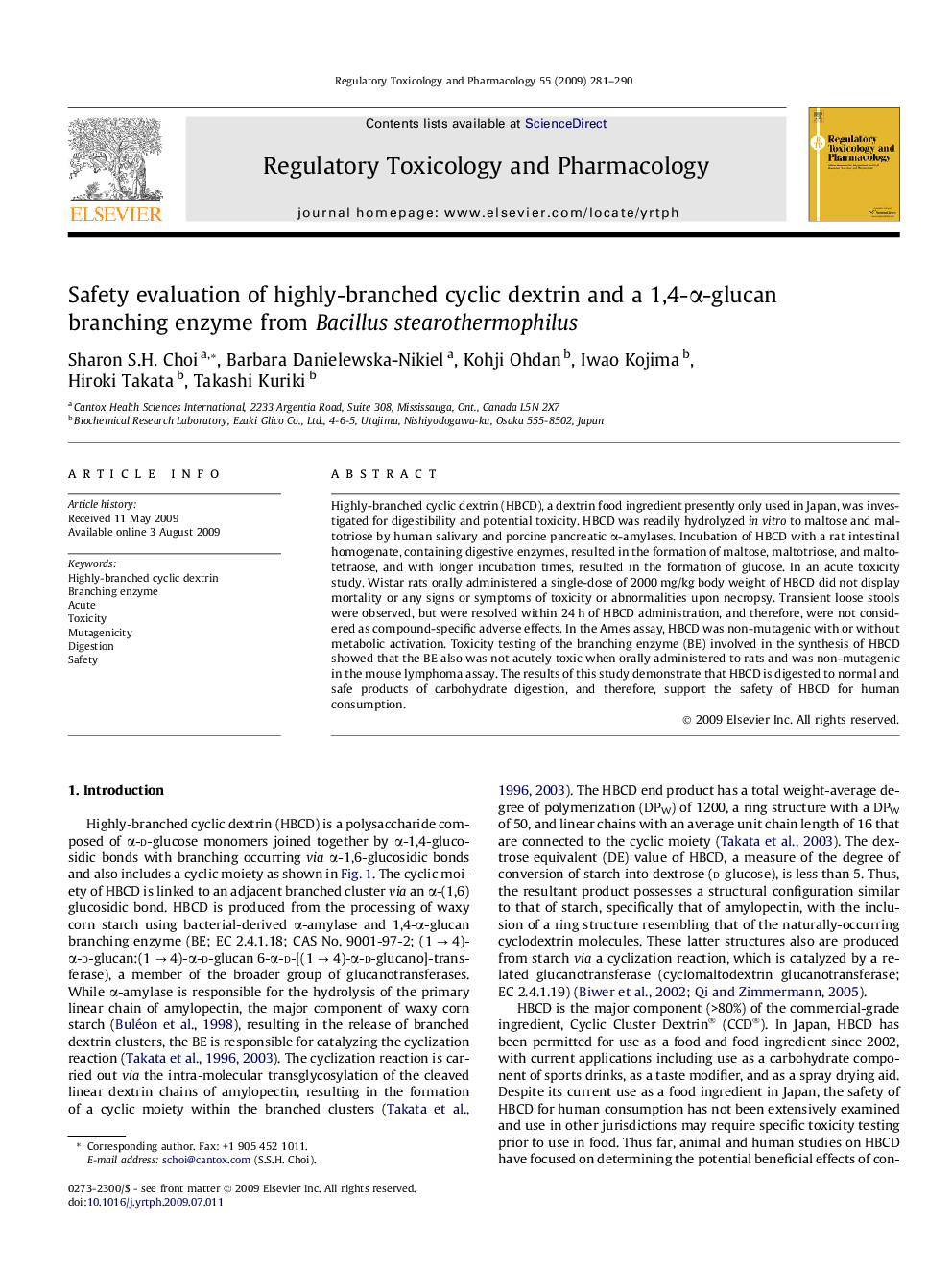| Article ID | Journal | Published Year | Pages | File Type |
|---|---|---|---|---|
| 2592582 | Regulatory Toxicology and Pharmacology | 2009 | 10 Pages |
Highly-branched cyclic dextrin (HBCD), a dextrin food ingredient presently only used in Japan, was investigated for digestibility and potential toxicity. HBCD was readily hydrolyzed in vitro to maltose and maltotriose by human salivary and porcine pancreatic α-amylases. Incubation of HBCD with a rat intestinal homogenate, containing digestive enzymes, resulted in the formation of maltose, maltotriose, and maltotetraose, and with longer incubation times, resulted in the formation of glucose. In an acute toxicity study, Wistar rats orally administered a single-dose of 2000 mg/kg body weight of HBCD did not display mortality or any signs or symptoms of toxicity or abnormalities upon necropsy. Transient loose stools were observed, but were resolved within 24 h of HBCD administration, and therefore, were not considered as compound-specific adverse effects. In the Ames assay, HBCD was non-mutagenic with or without metabolic activation. Toxicity testing of the branching enzyme (BE) involved in the synthesis of HBCD showed that the BE also was not acutely toxic when orally administered to rats and was non-mutagenic in the mouse lymphoma assay. The results of this study demonstrate that HBCD is digested to normal and safe products of carbohydrate digestion, and therefore, support the safety of HBCD for human consumption.
